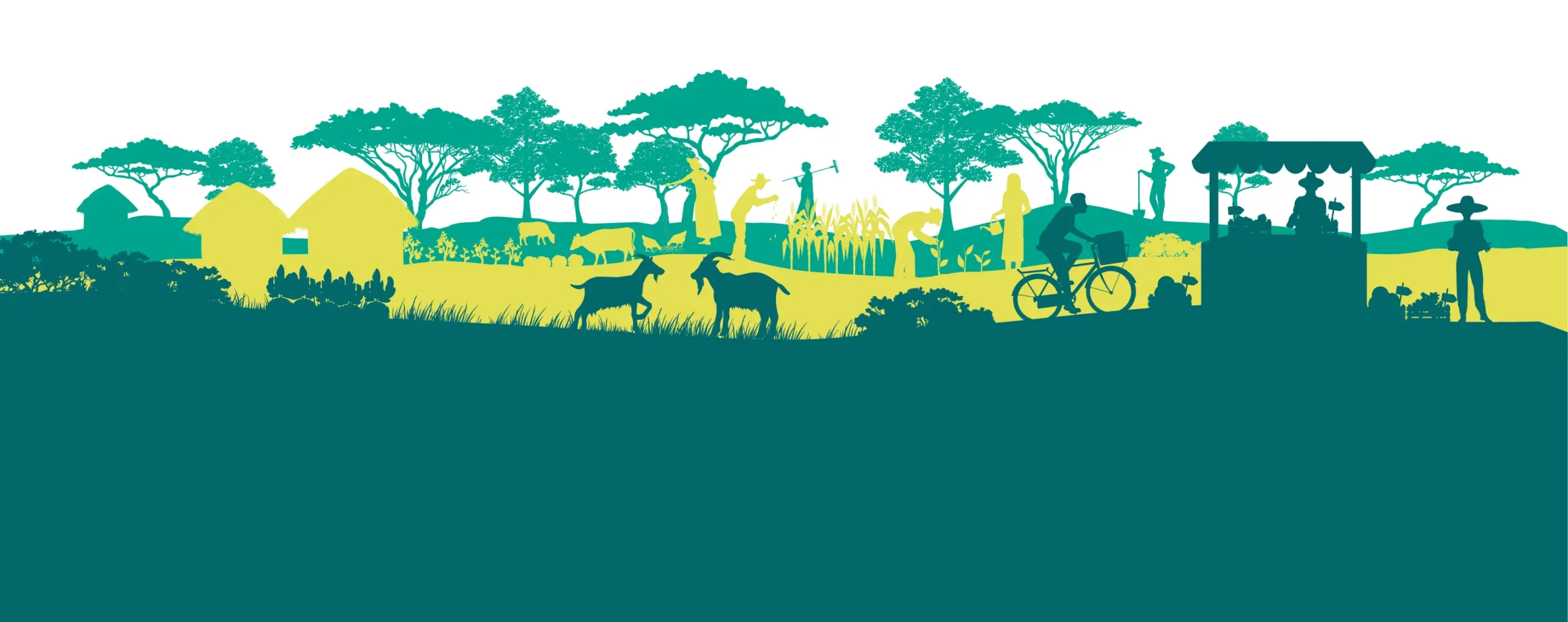Virtual activation workshop gathers diverse actors to co-create knowledge
By Monica Evans and Cannell Van Dien
Agroecology is a farming approach that is inspired by natural ecosystems, combines local and scientific knowledge, and focuses on the interactions between plants, animals, humans and the environment. Given the outsize contributions of conventional agriculture to climate change and biodiversity loss, there is growing recognition that the global food system needs a paradigm shift to feed the world without destroying the planet; agroecological principles are increasingly being considered critical to creating that change.
Gaps in knowledge and implementation currently constrain widespread uptake of agroecology. In that context, experts from across the globe have created a Transformative Partnership Platform (AE-TPP) on agroecological approaches to building resilience in both livelihoods and landscapes. The platform has its own Community of Practice (CoP), which is a member of the Global Landscapes Forum (GLF)’s network of independently organized chapters known as GLFx.
On 13 September 2022, the AE-TPP CoP held its first ‘activation workshop’, to introduce and open up the community to the wider public as a place where stakeholders – agroecology practitioners, farmers and farmer groups, scientists, researchers, and all those interested in agroecology – can come together to co-create, learn, and exchange. As illustrated by the map below, the event was attended by over 365 participants from all over the world, eager to join the CoP and connect with one another.

First, Fergus Sinclair, Chief Scientist at the Center for International Forestry Research–World Agroforestry Centre (CIFOR–ICRAF), shared a presentation on the Agroecology TPP’s genesis, objectives, and governance.
“We are following the paternoster principle: working bottom-up and top-down at the same time,” he said, “bottom-up to ensure solutions are feasible for farmers on the ground; top-down with policy makers and other food system actors to create an enabling environment and remove lock-ins that constrain uptake.”
CIFOR-ICRAF scientist Lisa Fuchs then presented key highlights of some current AE-TPP projects, which cover eight domains – socio-economic viability, pest and disease control, system metrics, policy, nutrition, inclusive water management, soil health, and the relationship between diversity and resilience. She also explained the three main modes of engagement with the Agroecology TPP, which include institutional partners in TPP activity, becoming an institutional forum member, and individuals joining the CoP.
Anita Moragia, a community engagement officer at GLF, next made a presentation about the GLFx platform, and shared how to navigate around the facilities and make use of it to greatest effect. Then, Fabio Ricci, a project communications coordinator at CIFOR-ICRAF, took audience members through the purpose, features, and ways to join the AE-TPP CoP. Audience members then participated in an interactive session facilitated by CIFOR-ICRAF communications consultant Daria Levina. They posed questions in the chat box to be answered by panellists, which spanned a wide range of areas, such as how the platform addresses language barriers and digital accessibility; how to measure the performance and impact of agroecology; and a request for state-level examples of agroecology uptake.
Participants also took part in a polling session to share their visions for the AE-TPP CoP. When asked which of a number of innovative features the AE-TPP CoP should implement first, the top three priorities given were examining case studies, periodic online sessions with a member of the AE-TPP, and being able to request workshops on specific topics. When asked what other features could be implemented, the most-discussed were courses and training; information on best practices; databases, tools and maps; communication features; regional events and CoP chapters, and field trips / live demonstrations. On the question of which agroecology topics should be discussed in the CoP, the most common responses were climate and restoration.
When asked about their primary reason for joining the community, almost half (49%) of respondents listed knowledge co-creation as their priority, while 29% cited the desire to learn about agroforestry, and 17% to network and connect. That lines up with a key message from Ricci, who posed the question during his presentation: “What is the value of being in a Community of Practice rather than being in a generic Facebook group on agroecology? It’s about learning, collaboration, and belonging; it boils down to creating a group, a family, with the aim of co-creating knowledge – co-creating science.”
You can replay the event’s recording at https://www.youtube.com/watch?v=nffTjf1JDZY and download the presentation slides here.

